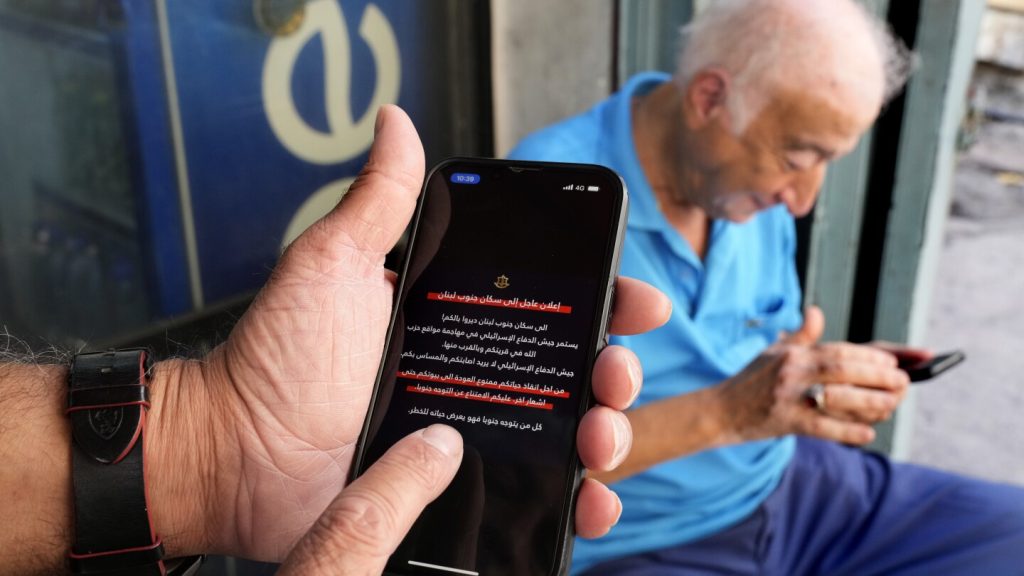As the war between Israel and Hezbollah intensifies, Lebanese civilians are increasingly bearing the brunt of the conflict, often receiving warnings in the middle of the night to evacuate buildings or neighborhoods to avoid airstrikes. The Israeli military typically issues these warnings before launching strikes against Hezbollah strongholds. Lebanese families like Moein Shreif’s have been forced to flee their homes in the middle of the night, leaving behind everything they own. The conflict between Israel and Hezbollah has escalated, with both sides exchanging strikes almost daily since the start of the war in Gaza.
Israel expanded its aerial campaign against Hezbollah late last month, leading to a dramatic increase in warnings about upcoming airstrikes in Lebanon. On September 23, Israel made 80,000 calls to Lebanese residents, causing panic and disruption as people rushed to evacuate their homes. The airstrikes on that day resulted in the deadliest day of attacks in Lebanon in decades, with over 500 people killed. Women and children accounted for a quarter of all the deaths, according to the country’s Health Ministry.
The warnings issued by Israel often instruct Lebanese residents to evacuate their homes immediately, causing confusion and fear among the population. Despite the limited number of evacuation notices in Lebanon compared to Gaza, the messages share a common theme of targeting militants embedded among civilians. Human rights groups have criticized Israel’s practice of warning entire towns and villages to evacuate, questioning the intention behind creating conditions for mass displacement.
The Lebanese government reports that over 1.2 million people have been displaced by the war, with around 800 shelters operating above capacity. The UN’s human rights division notes that one quarter of Lebanese territory is now under Israeli military displacement orders. Israel’s warnings are primarily distributed through social media and amplified by Lebanese media, with the military claiming to make significant efforts to save civilian lives with their alerts.
Areas around Beirut, once considered safe from airstrikes, are now receiving a growing share of warnings, putting residents at risk. Israeli warnings caution residents to stay away from any homes or villages with Hezbollah weapons, often accompanied by animated videos illustrating hidden weapons in households. In some cases, there are no warnings at all, leading to devastating consequences like the recent airstrike in Ain el-Delb that buried dozens of people under rubble.
The toll of the conflict is evident in stories like Achraf Ramadan’s, whose family experienced loss during an Israeli airstrike on their neighborhood. Despite rescue efforts, Achraf’s father survived while his mother passed away from injuries, and his sister, Julia, was found dead. As violence escalates, Lebanese families mourn the loss of loved ones and face uncertainty about the future. The international community’s response is called into question, with concerns raised about Israel’s actions and the impact on civilian populations caught in the crossfire.


